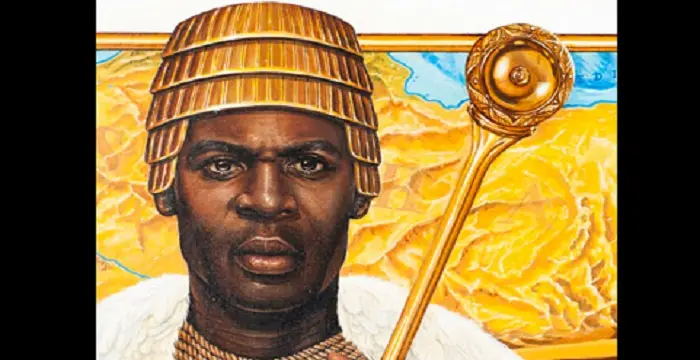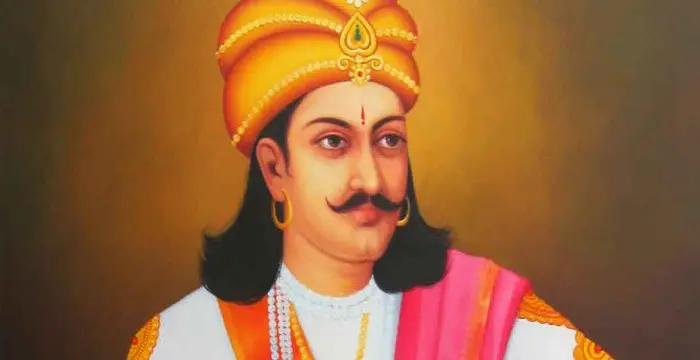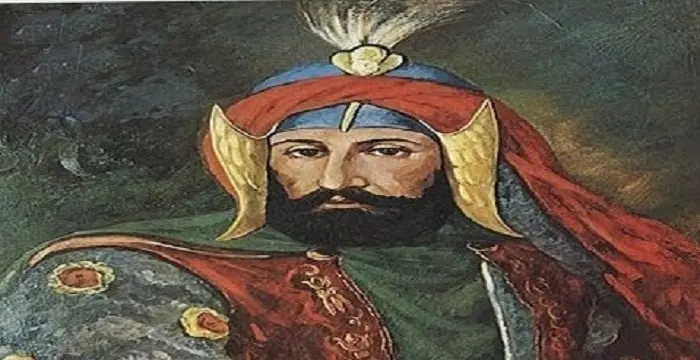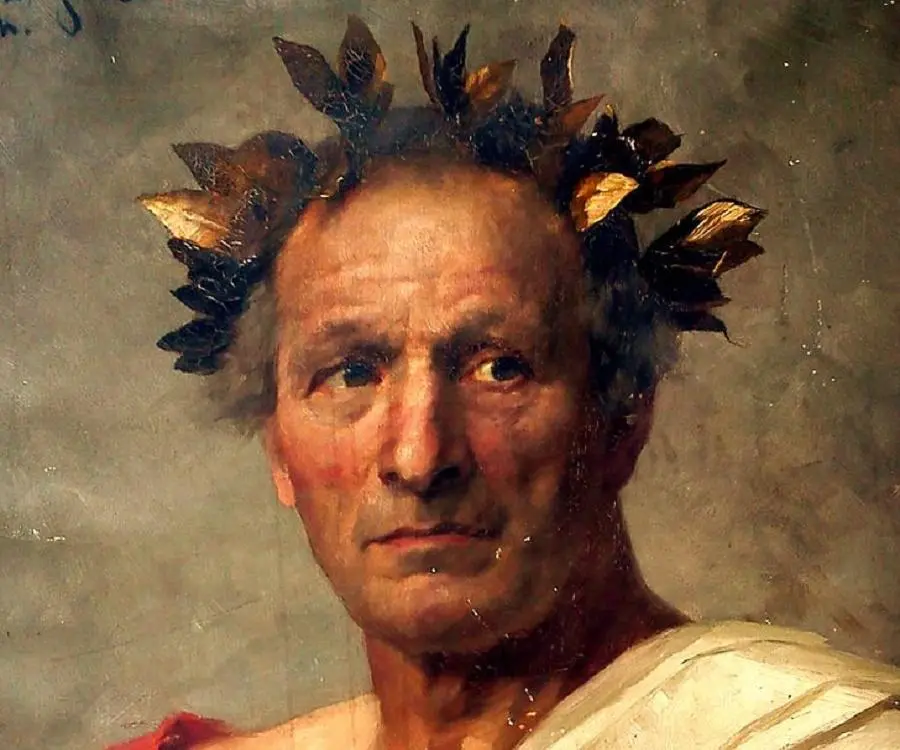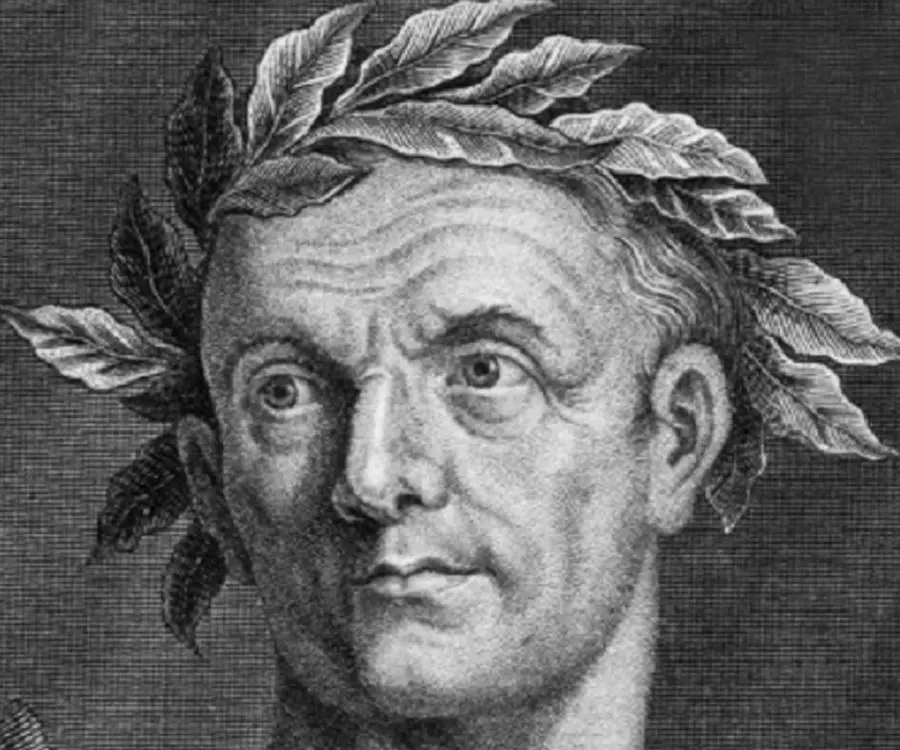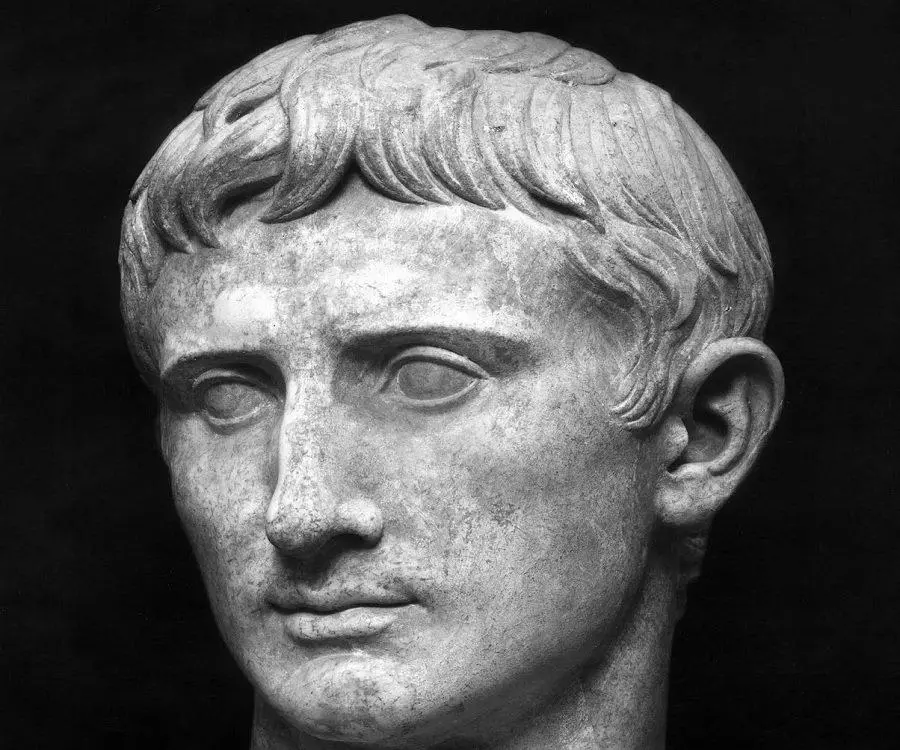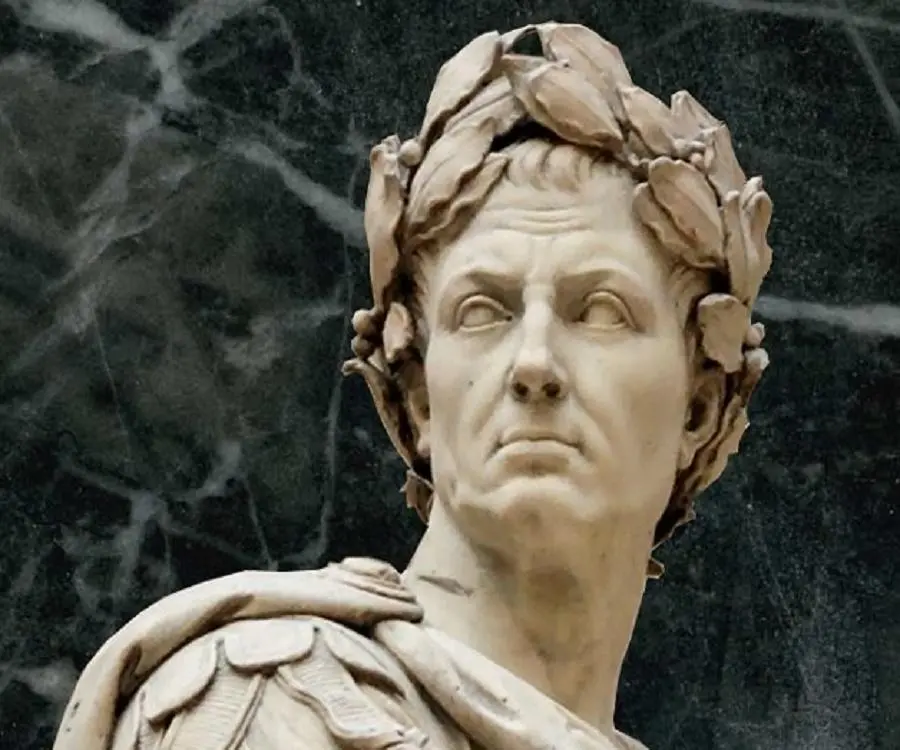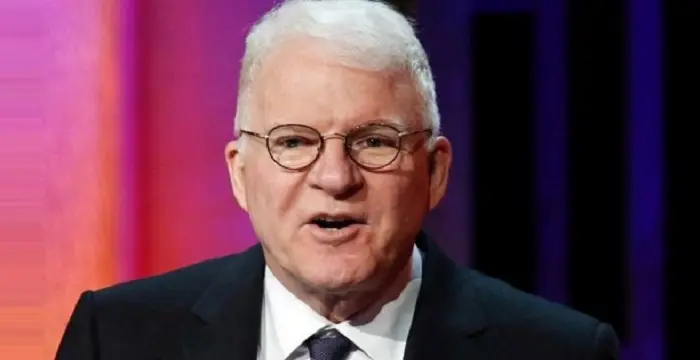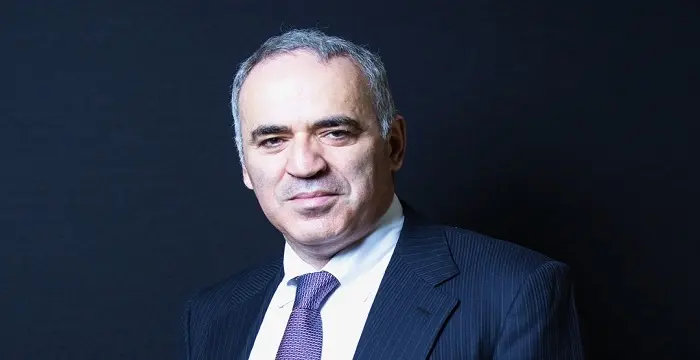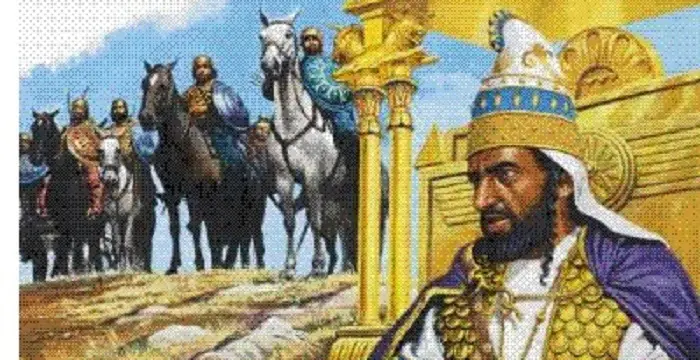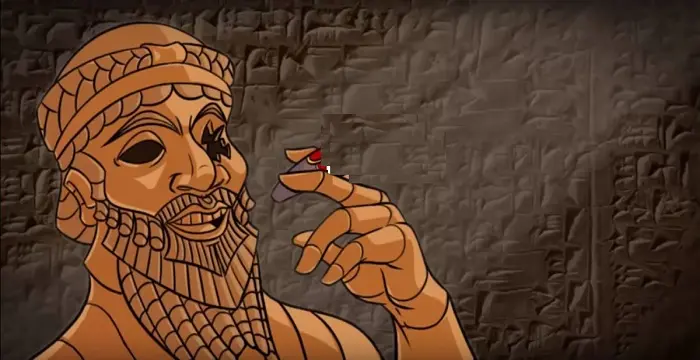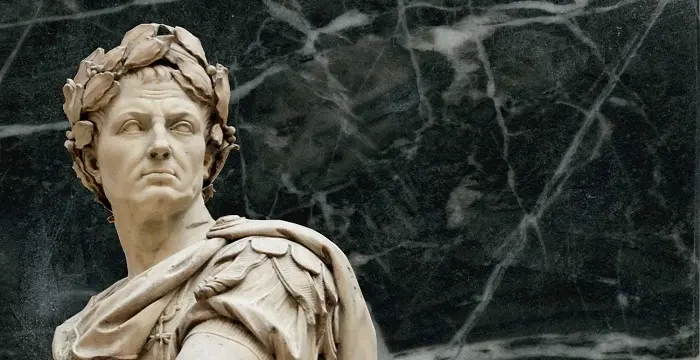
Julius Caesar - Kings, Timeline and Life
Julius Caesar's Personal Details
Julius Caesar, one of Ancient Rome's most famous individuals, was a statesman who changed the face of Rome
| Information | Detail |
|---|---|
| Nationality | Ancient Roman |
| Famous | Bisexual, Historical Personalities, Emperors & Kings, ENTJ, Emperors, Kings |
| Spouses | Calpurnia Pisonis, Cornelia Cinnilla, Pompeia |
| Siblings | Julia Caesaris |
| Known as | Gaius Julius Caesar |
| Childrens | Caesarion, Julia, Marcus Junius Brutus |
| Cause of death |
|
| Birth Place | Rome |
| Political Ideology | Roman general, statesman, Consul |
| Gender | Male |
| Father | Gaius Julius Caesar |
| Mother | Aurelia Cotta |
| Sun Sign | Cancer |
| Born in | Rome |
| Died at Age | 56 |
// Famous Kings
Sundiata Keita
Sundiata Keita was the founder of the Mali Empire in West Africa. This biography profiles his childhood, early life, struggles, founding of empire, rule, administration, achievements and also gives some fun facts.
Ashoka
Ashoka was the third emperor of the Mauryan Dynasty and ruled almost the entire Indian subcontinent. This biography profiles his childhood, life, reign, achievements and timeline
Murad IV
Murad IV was one of the mighty Sultans in the history of the Ottoman Empire. This biography profiles his childhood, family, accession, rule, administration and timeline.
Julius Caesar's photo
Who is Julius Caesar?
Regarded as ‘the greatest man of all ages’ by many, Julius Caesar is one of the most eternally fascinating figures in history. He was a politician and a diplomat who was passionate about whatever he did. He was a very talented general and statesman known for his exceptional skills at writing Latin prose. Above all this, he was a military genius. He was one of the key factors responsible for the fall of the Roman Republic and the rise of the Roman Empire. One of the most famous personalities in the human history, he was a courageous warrior and an expert swordsman. He was born into a turbulent era when different factions were trying to take control over the Roman state and the government. He was not only a very successful commander, but he also brought about a lot of social, economic and political reforms to make the country a better place to live in. The most important contribution he ever made was the reformation of the calendar with a leap year every four years - the one which we follow till date. The month July is named after him in his honor. Due to his unconditional love and respect for Rome and the development and organization he delivered to the country, he was given the title Pater Patriae (‘Father of the Fatherland’).
// Famous Emperors
Sundiata Keita
Sundiata Keita was the founder of the Mali Empire in West Africa. This biography profiles his childhood, early life, struggles, founding of empire, rule, administration, achievements and also gives some fun facts.
Ashoka
Ashoka was the third emperor of the Mauryan Dynasty and ruled almost the entire Indian subcontinent. This biography profiles his childhood, life, reign, achievements and timeline
Murad IV
Murad IV was one of the mighty Sultans in the history of the Ottoman Empire. This biography profiles his childhood, family, accession, rule, administration and timeline.
Childhood & Early Life
He was born in 100 BC into a patrician family. His father, Gaius Julius Caesar, governed the region of Asia and his aunt, Julia married one of the most important figures in the Republic. His mother, Aurelia, too came from a very influential family.
After the sudden death of his father in 85 BC, all the responsibilities fell on the 16 year old Julius. At that time there was a civil war going between his uncle, Gaius Marius and Lucius Cornelius Sulla.
He was nominated to be the new high priest and got married to Cornelia, daughter of Lucius Cornelius Cinna’s, Marius’s biggest ally.
Sulla was victorious in the war and his new target was Caesar. In a bid to save himself from Sulla, Caesar decided to go to Asia for military service. He came back only after Sulla’s death.
Career
He started his career as a prosecuting advocate and studied Philosophy temporarily in Rhodes.
In 69 BC he was elected the quaestor by the Assembly of people and later as curule aedile in 65 BC. He was also elected as Pontifex Maximus (high priest) in 63 BC.
In 59 BC, he was elected Senior Consul of the Roman Republic by the Centuriate Assembly. He needed allies, therefore, he made friends with Gnaeus Pompeius Magnus (Pompey the Great), former Lieutenant under Sulla’s rule and Marcus Licinius Crassus, a former consul and allegedly the richest man in Rome. He was in desperate need of the consul’s money and Pompey’s influence. Thus an informal union, called the First Triumvirate, was formed.
His discontentment led to the start of the Gallic Wars (58 BC- 49 BC) in which the remaining parts of France and Germania was annexed to Rome. He then waged wars against many other nations. Altogether, Caesar conquered 800 cities, subdued 300 tribes, sold a million slaves and had another 3 million killed in action.
Despite these conquests, he was always unpopular with his peers. After the death of Julia Caesaris (Caesar’s daughter and Pompey’s wife) and Crassus’s murder in 53 BC in Parthia, Pompey started drifting apart; he started getting closer to the Optimates. Caesar tried to bring him back but instead Pompey married Cornelia Metella, the daughter of Caesar’s greatest enemy Metellus Scipio.
In 50 BC, Caesar was asked by the Senate and Pompey to resign, he refused and in order to avoid prosecution, he fled to Italy by crossing the Rubicon River and civil war broke out.
He marched his troops to Rome and conquered it in 49 BC and then spent the next 18 months fighting Pompey. Pompey fled to Egypt after being defeated by Caesar. Frightened that Caesar would invade Egypt, the young Pharaoh, Ptolemy VIII, had Pompey killed and presented his head as a gift to Caesar.
After Caesar was declared dictator, he established police forces, introduced land reforms, abolished taxes and re-established the tribune system. Militarily, he wanted to conquer Parthians, Dacians and Carrhae. The most important change was the reformation of the calendar. The Roman calendar was according to the movements of the moon so Caesar changed it according to the sun’s movement just like the Egyptians.
Even though Rome had its senate, the real power was with Caesar and they were scared of Rome being governed by a King. Caesar did not wish to become the king but the fear of the republicans led the senate to conspire against Caesar.
On the Ides of March (15th of March), Caesar was assassinated by the senators. After his death, a civil war broke out between the murderers (Liberators) and the Second Triumvirate i.e. Mark Anthony, Octavian (Caesar’s grandnephew) and Lepidus (Caesar’s loyal cavalry commander).
Major Works
Militarily, Caesar’s tactical brilliance was compared to that of Alexander’s stature. Battle of Alesia took place in September, 52 BC. It was the last major engagement between the Gauls and the Romans. It was the turning point of the Gallic Wars in favour of Rome.
The Battle of Pharsalus was the decisive battle of Caesar’s civil war. He defeated his long time friend-turned-enemy Pompey. Though Pompey had the greater number of warriors, Caesar’s army was more experienced and better trained.
He was one of the finest and brilliant orators and authors of prose in Rome. Among the most famous was his funeral oration for his aunt. ‘Anticato’ is a document that was written to respond to the Cato’s memorial.
Most of his works have been lost but some of his best preserved works are - the Commentarii de Bello Gallico (Commentaries on the Gallic War); and the Commentarii de Bello Civilo (Commentaries on the Civil War).
Personal Life & Legacy
He was first married to Cornelia Cinnilla, daughter of Gaius Marius, from 83 BC until 63 BC - they had a daughter called Julia.
His second marriage was with Pompeia from 67 BC to 61 BC. He got married for the third time to Calpurnia Pisonis in 59 BC. The marriage lasted until his death.
Caesar had a love affair with Cleopatra VII, who was the Queen of Egypt. They were madly in love and even had a child together called Caesarion, who was killed.
It is believed that he suffered from epilepsy.
He was the first historical Roman to be deified. He was given the title “Divus Juliusor Divus” (the divine Julius). The comet that appeared during the games confirmed his godliness.
In 46 BC, Caesar gave himself the title ‘Prefect of the Morals’ which was a new office that basically censored offensive matters.
He was the only Roman to have his picture on a coin while still alive.
A group of senators, led by Brutus, stabbed him to death in March 44 BC.
Trivia
William Shakespeare had written a very famous play based on this person’s life story.
He refused to make his own son the heir to the throne and instead gave it to his great grandnephew Octavian.
// Famous ENTJ
Jack Welch
Jack Welch is an American business executive famous for serving as the CEO of General Electric. This biography of Jack Welch provides detailed information about his childhood, life, achievements, works & timeline.
Steve Martin
Steve Martin is a multiple award winning American comedian, actor and writer. This biography of Steve Martin provides detailed information about his childhood, life, achievements, works & timeline
Garry Kasparov
Garry Kasparov is a Russian chess Grandmaster considered by many to be the greatest chess player of all time. This biography of Garry Kasparov provides detailed information about his childhood, life, achievements, works & timeline.
Julius Caesar biography timelines
- // Jul 100 BC To 15th Mar 44 BCHe was born in 100 BC into a patrician family. His father, Gaius Julius Caesar, governed the region of Asia and his aunt, Julia married one of the most important figures in the Republic. His mother, Aurelia, too came from a very influential family.
- // 85 BCAfter the sudden death of his father in 85 BC, all the responsibilities fell on the 16 year old Julius. At that time there was a civil war going between his uncle, Gaius Marius and Lucius Cornelius Sulla.
- // 69 BC To 63 BCIn 69 BC he was elected the quaestor by the Assembly of people and later as curule aedile in 65 BC. He was also elected as Pontifex Maximus (high priest) in 63 BC.
- // 67 BC To 59 BCHis second marriage was with Pompeia from 67 BC to 61 BC. He got married for the third time to Calpurnia Pisonis in 59 BC. The marriage lasted until his death.
- // 59 BCIn 59 BC, he was elected Senior Consul of the Roman Republic by the Centuriate Assembly. He needed allies, therefore, he made friends with Gnaeus Pompeius Magnus (Pompey the Great), former Lieutenant under Sulla’s rule and Marcus Licinius Crassus, a former consul and allegedly the richest man in Rome. He was in desperate need of the consul’s money and Pompey’s influence. Thus an informal union, called the First Triumvirate, was formed.
- // 58 BC To 49 BCHis discontentment led to the start of the Gallic Wars (58 BC- 49 BC) in which the remaining parts of France and Germania was annexed to Rome. He then waged wars against many other nations. Altogether, Caesar conquered 800 cities, subdued 300 tribes, sold a million slaves and had another 3 million killed in action.
- // 53 BCDespite these conquests, he was always unpopular with his peers. After the death of Julia Caesaris (Caesar’s daughter and Pompey’s wife) and Crassus’s murder in 53 BC in Parthia, Pompey started drifting apart; he started getting closer to the Optimates. Caesar tried to bring him back but instead Pompey married Cornelia Metella, the daughter of Caesar’s greatest enemy Metellus Scipio.
- // Sep 52 BCMilitarily, Caesar’s tactical brilliance was compared to that of Alexander’s stature. Battle of Alesia took place in September, 52 BC. It was the last major engagement between the Gauls and the Romans. It was the turning point of the Gallic Wars in favour of Rome.
- // 50 BCIn 50 BC, Caesar was asked by the Senate and Pompey to resign, he refused and in order to avoid prosecution, he fled to Italy by crossing the Rubicon River and civil war broke out.
- // 49 BCHe marched his troops to Rome and conquered it in 49 BC and then spent the next 18 months fighting Pompey. Pompey fled to Egypt after being defeated by Caesar. Frightened that Caesar would invade Egypt, the young Pharaoh, Ptolemy VIII, had Pompey killed and presented his head as a gift to Caesar.
- // 46 BCIn 46 BC, Caesar gave himself the title ‘Prefect of the Morals’ which was a new office that basically censored offensive matters.
- // Mar 44 BCA group of senators, led by Brutus, stabbed him to death in March 44 BC.
- // 15th Mar 44 BCOn the Ides of March (15th of March), Caesar was assassinated by the senators. After his death, a civil war broke out between the murderers (Liberators) and the Second Triumvirate i.e. Mark Anthony, Octavian (Caesar’s grandnephew) and Lepidus (Caesar’s loyal cavalry commander).
// Famous Emperors & Kings
Sundiata Keita
Sundiata Keita was the founder of the Mali Empire in West Africa. This biography profiles his childhood, early life, struggles, founding of empire, rule, administration, achievements and also gives some fun facts.
Ashoka
Ashoka was the third emperor of the Mauryan Dynasty and ruled almost the entire Indian subcontinent. This biography profiles his childhood, life, reign, achievements and timeline
Murad IV
Murad IV was one of the mighty Sultans in the history of the Ottoman Empire. This biography profiles his childhood, family, accession, rule, administration and timeline.
Xerxes I
Xerxes I (Xerxes the Great) was the fourth and the most famous king of the Archaemenid dynasty of Persia. This biography profiles his childhood, family, personal life, life history, achievements, campaigns, administration, death and other facts.
Sargon of Akkad
Sargon of Akkad, also called ‘Sargon the Great’, ‘Sarru-Kan’ and ‘Shar-Gani-Sharri’, was the founder and first king of the Akkadian Empire. This biography profiles his childhood, life, rule, administration, timeline, and gives some fun facts.
Abdullah of Saudi Arabia
Abdullah bin Abdulaziz Al Saud was the King of Saudi Arabia from 2005 to 2015 and the third wealthiest head of state in the world. Find more facts about his life, childhood and timeline.
Julius Caesar's FAQ
What is Julius Caesar birthday?
Julius Caesar was born at 2020-04-12
When was Julius Caesar died?
Julius Caesar was died at 2020-04-14
Where was Julius Caesar died?
Julius Caesar was died in Theatre of Pompey
Which age was Julius Caesar died?
Julius Caesar was died at age 56
Where is Julius Caesar's birth place?
Julius Caesar was born in Rome
What is Julius Caesar nationalities?
Julius Caesar's nationalities is Ancient Roman
Who is Julius Caesar spouses?
Julius Caesar's spouses is Calpurnia Pisonis, Cornelia Cinnilla, Pompeia
Who is Julius Caesar siblings?
Julius Caesar's siblings is Julia Caesaris
Who is Julius Caesar childrens?
Julius Caesar's childrens is Caesarion, Julia, Marcus Junius Brutus
What is Julius Caesar's cause of dead?
Julius Caesar dead because of Assassination
What is Julius Caesar's political ideology?
Julius Caesar's political ideology is Roman general, statesman, Consul
Who is Julius Caesar's father?
Julius Caesar's father is Gaius Julius Caesar
Who is Julius Caesar's mother?
Julius Caesar's mother is Aurelia Cotta
What is Julius Caesar's sun sign?
Julius Caesar is Cancer
